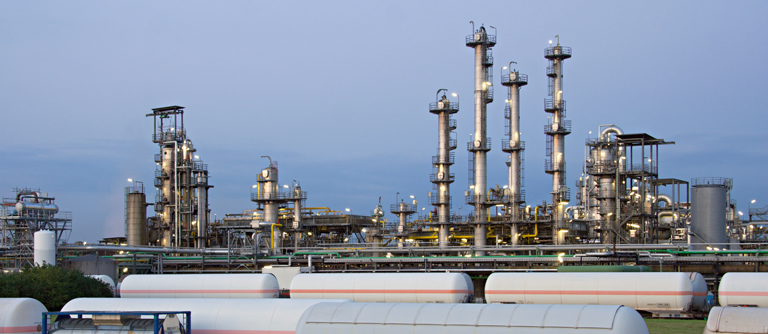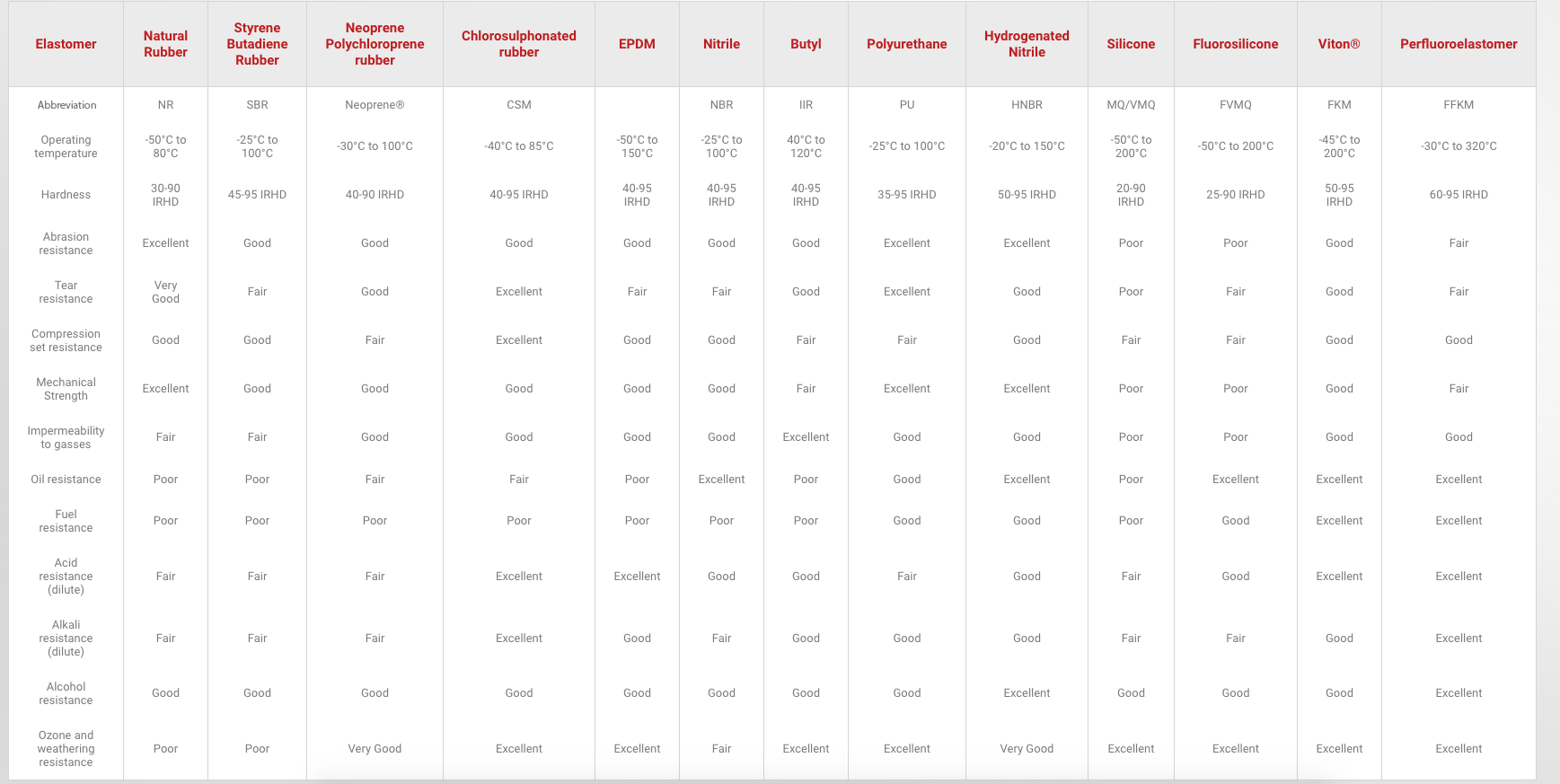Find the most appropriate ‘O’ ring size for your application.
Nitrile Material Information
TRP Polymer Solutions offers a comprehensive selection of seal materials. Our highly experienced technical experts can recommend the most suitable polymer for your specific sealing application, ensuring the highest standards of operational safety and performance are maintained at all times. Our experts at TRP Polymer Solutions formulate innovative sealing solutions from the conceptual design stage through to full production.
One of the high-performance polymers that we work with at TRP Polymer Solutions is nitrile. This synthetic rubber is a suitable seal material for applications requiring excellent resistance to oils, non-polar solvents and acids. All polymer materials have their advantages and disadvantages, and nitrile is no different. Read on for a full overview of the advantages, disadvantages and typical applications of nitrile rubber.
What is nitrile?
Nitrile rubber, also known as nitrile-butadiene rubber, NBR or Buna-N, is a synthetic rubber that is manufactured by combining butadiene and acrylonitrile. These polymers are emulsified in water and then polymerised using free-radical initiators. The polymerisation process links single-unit molecules together into larger, multiple-unit molecules. The more acrylonitrile there is within the polymer, the higher the resistance to oils but the lower the flexibility of the material.
Advantages of Nitrile rubber
Nitrile is a popular seal material for a wide range of applications and industries. NBR’s versatility and reliability makes it an excellent choice for general-purpose applications. Nitrile rubber is reasonably resistant to petroleum oils, crude oil, water, gasoline, propane and some hydraulic fluids. It also provides good abrasion and compression set resistance. As a reliable and cost-effective sealing solution, nitrile is a dependable choice. It is widely used in the automotive, marine and aerospace industries.
Disadvantages of Nitrile rubber
The main disadvantage of nitrile rubber is its poor performance when exposed to UV, general weathering and ozone. It is therefore not advisable for outdoor applications. Nitrile offers relatively poor steam resistance and an unremarkable operational temperature range of -25 °C to +100 °C.
Nitrile rubber ‘O’ ring applications
Nitrile is a versatile and reliable sealing material used in a wide range of industrial applications, including:
• Nitrile ‘O’ rings
• Nitrile gaskets
• Nitrile seals
• Fuel pump diaphragms
• Hydraulic hoses
• Nitrile rubber tubing
Frequently asked questions about nitrile
Why is nitrile rubber oil resistant?
Good question. The physical and chemical properties of nitrile rubber products vary depending on the amount of acrylonitrile in the polymer. The more acrylonitrile that is added, the higher the polymer’s resistance to oils but the more inflexible it becomes. These oil-resistant characteristics occur with an increase in the electronegativity of a rubber’s side-chain group. Acrylonitrile has a cyanide side group, which is electronegative and therefore provides the oil resistance nitrile rubber is famous for.
So is nitrile rubber safe?
Yes, nitrile is perfectly safe. Although nitriles contain cyanide, this merely means it is one of many compounds that have a carbon-nitrogen (CN) bond. This type of chemical structure is found in countless naturally occurring nitriles that we eat, such as almonds, soy and spinach. Nitrile is an FDA-approved seal material, which means it passes stringent testing standards of non-toxicity and chemical compatibility. Nitrile is the seal industry’s most widely used and economical elastomer. Certain grades of nitrile are used in food-grade products but this material is probably best-known for its use in medical gloves.
Does nitrile rubber conduct electricity?
The combination of increased levels of particulate carbon black filler and short carbon fibre with applied pressure has been shown to make nitrile rubber more electrically conductive. Compounds containing higher amounts of short carbon fibres are more conductive than their particulate counterparts. One application for electrically conductive nitrile is in the manufacture of metal detectable nitrile rubber ‘O’ rings in food and beverage applications, which are designed to trace any fragments that would otherwise contaminate the final product.
Where to buy nitrile rubber seals?
TRP Polymer Solutions is an industry-leading manufacturer of high-performance nitrile rubber sealing components. We develop a comprehensive selection of sealing products from every type of polymer material imaginable. For advice and guidance about our various ‘O’ ring materials – including nitrile – or to discuss your application requirements in more detail, call TRP Polymer Solutions today on +44(0)1432 268899 or email sales@trp.co.uk.





